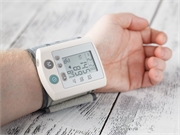So-called reverse dipping among those with hypertension tied to cerebrovascular disease, memory problems
FRIDAY, April 17, 2020 (HealthDay News) — Higher nighttime blood pressure may exacerbate the detrimental effects of hypertension on cerebrovascular health and cognitive abilities among middle-aged individuals, according to a study published online April 15 in Neurology.
Anthony G. Chesebro, from Columbia University in New York City, and colleagues used data from the Maracaibo Aging Study in which 435 community-based participants (median age, 59 years) received ambulatory 24-hour blood pressure monitoring, structural magnetic resonance imaging, and neuropsychological assessment. The relationship between hypertension and dipping status (nocturnal blood pressure decline) on white matter hyperintensity (WMH) volume and neuropsychological test scores in middle-aged and older adults was assessed.
The researchers found that the majority of the participants (59 percent) were hypertensive. One in 10 participants were reverse dippers, while four in 10 were nondippers. The combination of reverse dipping and hypertension was associated with particularly elevated periventricular WMH volume and with lowered memory scores. The effect of dipping status and hypertension on memory was mediated by periventricular WMH volume.
“These results point toward reverse dipping as a marker of poor nocturnal blood pressure control, particularly among hypertensive individuals, with potentially pernicious effects on cerebrovascular health and associated cognitive function,” the authors write.
Copyright © 2020 HealthDay. All rights reserved.








